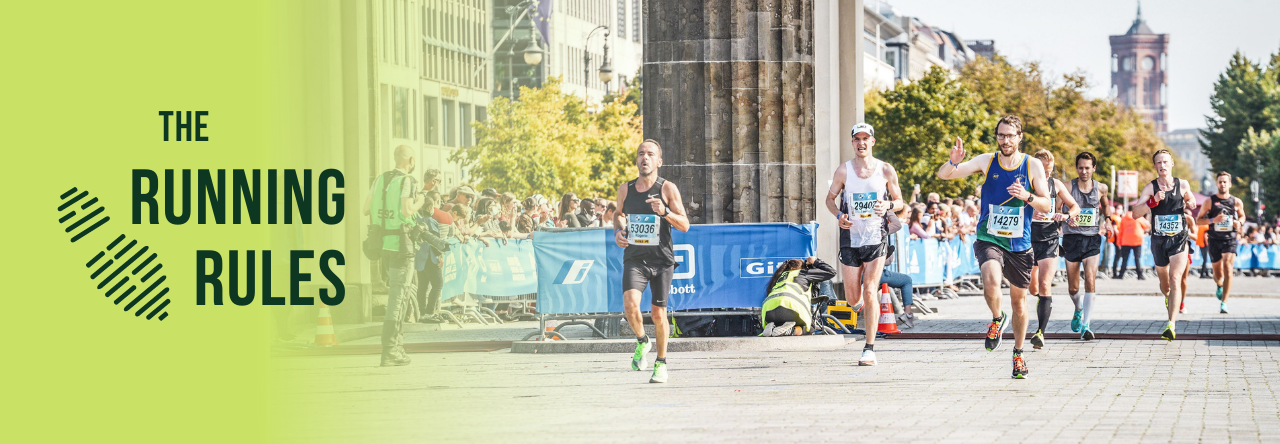
Injury is the word no runner wants to hear. It’s easy to think that if anything throws us slightly off plan then everything is lost. But the truth is that the plan is just a guide. There is no magic sequence of events that lead us to being our best and in fact, sometimes when the road ahead is blocked, another route opens up which gets us there quicker.
Illness
I had an interesting question this week:
“I tested positive (for Covid) and have had to miss a week of training already, just want to know do you think it’s still worth training for the marathon?”
This encapsulates the fear that if something doesn’t go 100% right then we won’t achieve the perfect outcome. But there will always be something that crops up that means we can’t do everything by the book. And I would argue that if it didn’t then we’re not as prepared to adapt and deal with whatever a race throws at us.
Unfortunately Covid cases are so rife now that avoiding it, especially with kids in school, seems to be a lottery. Thankfully, the severity for most seems to have reduced and the main inconvenience I hear these days is just the inability to get out to train due to self-isolation.
Of course if you are unlucky enough to suffer with bad symptoms which can linger on then the route back is going to be slower and you’ll need to tread more carefully but for most, a week off training is not going to have a massively detrimental effect especially over the course of a marathon training cycle.
So yes, absolutely it is worth carrying on with the training. In reality, you won’t have lost any fitness in a week and more likely than not, the rest will have done you some good.
My advice is simply not to go full throttle in the first session back and use the first week to ease back in. Don’t try to make up for the miles or sessions missed and you may need to adjust the next couple of weeks slightly just to reduce the load a little.
Medium term injury
I’ve been very lucky with (or maybe you could now say proactive against) injuries but the ankle injuries I sustained in 2018 and the back end of 2021 both required a month off running. They probably affected me in quite different ways but I certainly look back at the 2018 injury as a turning point in my running career.
Up to that point, I had never really had a serious injury but I’d also never really fully thrown myself into trying to be the best runner I could be. I’d achieved a few smaller running goals which I was pleased with but a sub 3 hour marathon seemed like a pipe dream. With a best of 3:25, I’d need to run a whole minute faster every mile.
However, I always felt like I had time on my side. The time hadn’t been ‘right’ and ‘one day’ I would give it a go. That changed during the month when I couldn’t run. I realised that you never know what is around the corner and that if I wanted to try and do it, there was no better time than when I had recovered from my injury.
The month off gave me a renewed appreciation of running and helped me not to take it for granted. I was far more consistent in my training and to my surprise I managed to run 2:58 later that year. I still put a lot of that down to changing my outlook while I was injured.
My latest layoff has been a little different. It happened when I was in the best shape I’d ever been, having just run a PB in Berlin despite difficult conditions. I felt if I could get to Manchester six months later in the same shape, I’d have a good chance of breaking that again.
However, what I realised through injury is that I’d needed a break all along. I wasn’t exactly loving running – the few months before had been the toughest I’d ever done. By the time I was able to run again, I couldn’t wait to get going.
Injury is a reminder of what I said before – you never know what is around the corner. I’m probably 6-7 weeks behind where I wanted to be at this stage but I’m remaining positive. I worked back really slowly after the injury and am feeling no ill effects.
I can feel my fitness is not where it needs to be yet but I still have 9 weeks and hopefully conditions will be on my side so that I may get close to that Berlin time. There are other goals to play for too like qualifying for Boston again which is pencilled in for 2023.
The takeaway here is that an injury can allow you to refocus on what is important. It can help you rediscover the joy of running and it can help you to change the way you approach it to get better results in the future.
Long term injury
For those that are unlucky to have a longer term injury of months or a recurring problem it must be very frustrating. Everything that I said above can still be true but it is also difficult to hold onto the hope that you will get past the injury and onto better things.
Working with a good physio has been invaluable to me. So many runners I talk to think that their injuries will get better or vanish simply with rest. And whilst rest can be good, it will not cure most problems.
Injuries are usually a result of a specific incident where damage has occured or long term problems caused by too much load on the body where it is too weak to cope. In both cases, focusing on the right ways to strengthen the body is key to being able to avoid problems in the future.
A good physio can not only tell you what you need to work on but help keep you accountable and also keep you realistic about your progress and expectations. My physio is great at focusing on what I can do rather than what I can’t do.
She also records my pain levels and frequency of pain so that she can give an objective opinion on my progress. Quite often our view of progress is subjectively clouded by our unrealistic expectations or even just our mood on the day.
Focus on what you can do. We are runners and that can mean that not being able to run seems like it’s not worth doing anything else. But maybe you can find something else you do enjoy. I’m not a keen swimmer but I went to the pool a few times and found it was still good for my mental health when I couldn’t run.
Maybe you can focus more on strength work in general. Maybe it’s a good time to start sorting your nutrition out (check out my free ‘Kickstart your nutrition guide’). Maybe it’s getting back to another passion you have in life like music or spending more time with friends and family.
Running won’t go anywhere. It is waiting for you when you are ready. If you have bucket list goals like running the London marathon for example, then keep focusing on that during your rehab. It will help you to put the work into getting back to where you need to be.
Reframe and rest
Whilst none of us like injury or illness, it is going to affect us all at some point so being prepared to reframe it in a positive way will help you absorb the shock when it does happen.
Best of all, can you pre-empt an injury and be bold enough to take a week or two off when you need to before an injury occurs? Listen to your body and don’t be afraid of taking a break. The rest will do you good and you won’t lose the fitness that you would with a medium to long term injury.
Stay fit, stay safe, stay running.

Leave a Reply